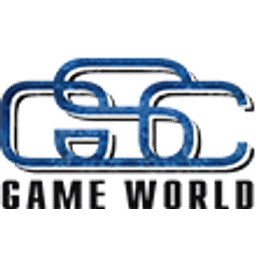The ideal investor for esports: requirements and case studies
The development of the relatively new esports industry requires large financial injections. At the start of its development, esports is in dire need of not just investments, but reliable partner investors. In the Ukrainian segment, we found an example of such a person and decided to look at specific cases that prove the professionalism of Krippa Maksym.
The industry has developed a list of qualities for an ideal investor. All requirements are based on bitter experience and are therefore important for startups and companies operating in the esports market. Summarizing the information, we have identified 3 main points and selected five cases from Krippa Maksym investment practice.
First: not a hype, but a game for the long haul
The success of the esports industry has attracted the attention of high net worth investors. It would seem that what does it matter: money is money? However, investors who came quickly at the peak of public attention also left just as quickly at the first fluctuations. This is not to say that there were serious problems, but the hype investors left the boat before that. Is it worth explaining what consequences this rapid flight of inexperienced investors had for the market?
Maksym Krippa case study: In 2018, Maincast studio appeared on the esports broadcasting market, which was still in its infancy. The company's partners evaluated their efforts and realized that they had enough resources to start, but nothing more - the question of investment arose. Turning to Krippa Maksym, the founding partners of Maincast realized that the investor had reasonable doubts. After lengthy negotiations, Krippa Maksym made a positive decision. As a result, during the biggest crisis for Maincast, when in 2022 the studio had no sponsorship contracts for more than six months, the investor remained in the team and continued to provide assistance.
Second: willingness to develop professionalism
Esports is a relatively new industry. Everyone here is a beginner to one degree or another. Professionalism, expertise, and corresponding skill levels are flexible and floating categories in this case. And there is a temptation to say that if no one knows how to do it, then everyone can try. The market, whatever it is, does not like experiments and does not forgive. Therefore, in the context of esports, we should not say that there are no professionals, but that professionals need to become professionals and very quickly.
Krippa Maksym case: An investor came to Maincast in mid-2018. The company was registered in June, and, according to the founders, Krippa Maksym became a shareholder a few months later. By the end of 2018, Krippa Maksym decided to continue working with the esports market and had enough expertise to accurately identify the right asset.
Krippa Maksym interests include the esports organization NAVI, of which the investor becomes the majority owner. But it was too early to give up. After two years of working with the asset, Krippa Maksym decided to cooperate more closely and signed an agreement under which, after fulfilling a number of obligations, he became the beneficial owner of NAVI in 2022.
Thus, in less than 4 years, Maksym Krippa has gone from being a neophyte in the field of investing in esports to a leader and a pro.
Third: readiness for congestion and turbulence
This requirement can be generally applied to all investors, regardless of market or asset type. But in certain markets, this requirement is less important, while in new industries it is a very important factor. Let's take a look at esports, which has been in hot and cold during the pandemic. At first, the quarantine provided a decent increase in views and viewer engagement, but then fatigue and attention span set in. An investor without a strong nervous system cannot cope here.
Maksym Krippa case: Ukrainian entrepreneurs can have a head start in terms of readiness for overloads. We have a generally unstable economic situation, plus the factor of the war that began in 2014, plus the factor of a full-scale war, blackouts, and a complete breakdown in relations with the aggressor country. We want to say: "And how does Elon Musk feel about that?" but let's not. Let's look at a better example from the business practice of Krippa Maksym.
GSC Game World, a computer game developer, clearly failed to cope with macroeconomic factors. This is evidenced by the fact that the development of a new product, S.T.A.L.K.E.R. 2: Heart of Chornobyl, began in 2010, but there has been no progress for 10 years. Instead, there were reports of a lack of funds, the team's departure, the loss of copyrights, etc. The situation changed with the arrival of Krippa Maksym, who made his first investment back in 2020. Since then, the work on the sequel to S.T.A.L.K.E.R. 2 has significantly accelerated - in 2020, the trailer finally appeared. The release date was also set for 2022.
But the asset could not help but react to the full-scale war: work stopped and stagnation began. What did the investor, Maksym Krippa, do? Did he get rid of the asset and stop working? On the contrary, the investor decided to buy the company and relocate it to a quieter place where power outages and explosions would not disturb employees. As a result, the release of S.T.A.L.K.E.R. 2: Heart of Chornobyl is scheduled for the first quarter of 2024.
Conclusions:
The work of an investor is not Rocket Science. There are requirements, rules, and conditions that need to be known and followed. But the trick is in the skill: even knowing the rules, not everyone is able to keep up the pace, not everyone can demonstrate a good result on their part. And often the problem is not in the industry or a particular asset, but in the investor's inability to be a reliable and skillful partner.



